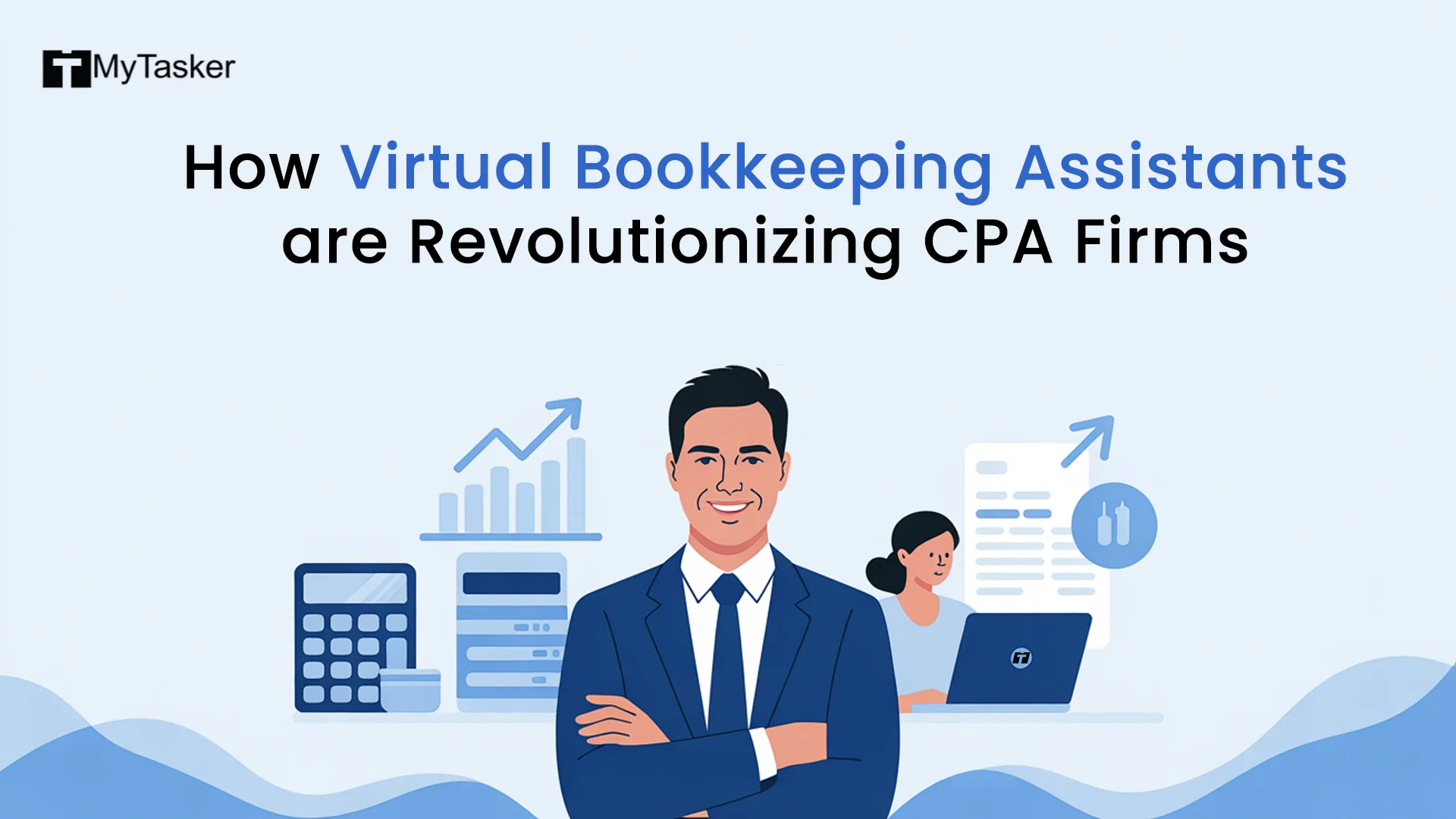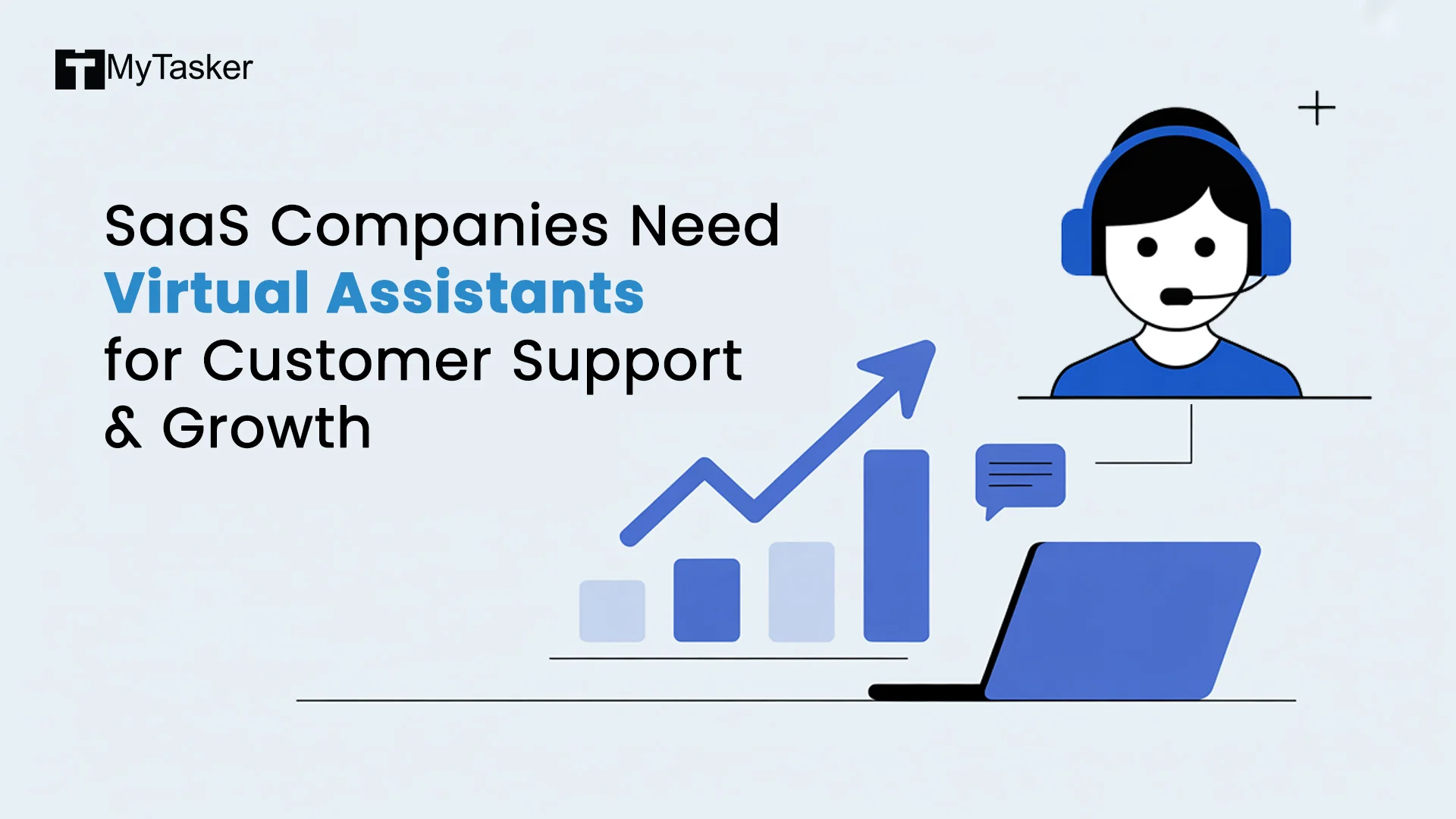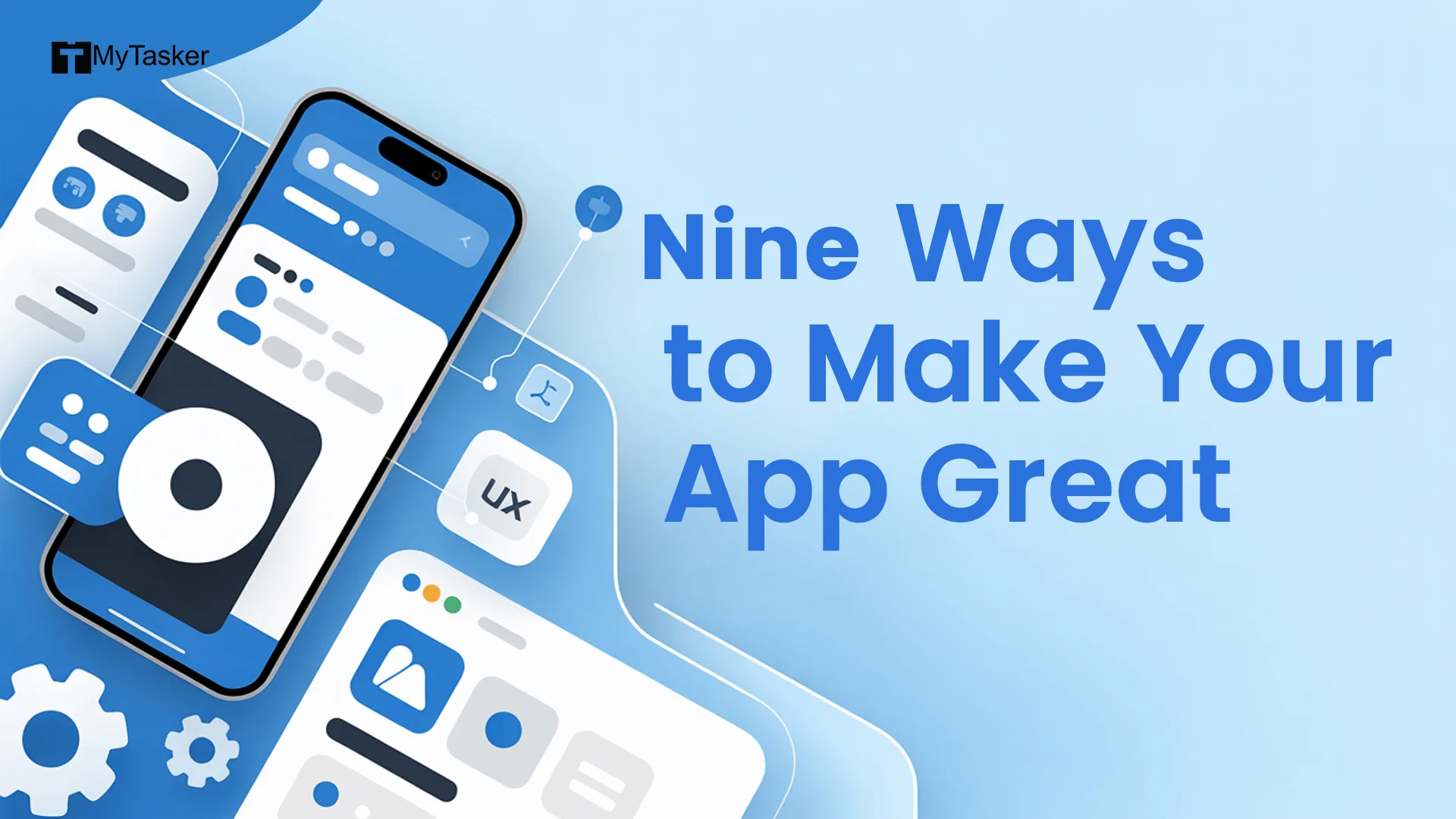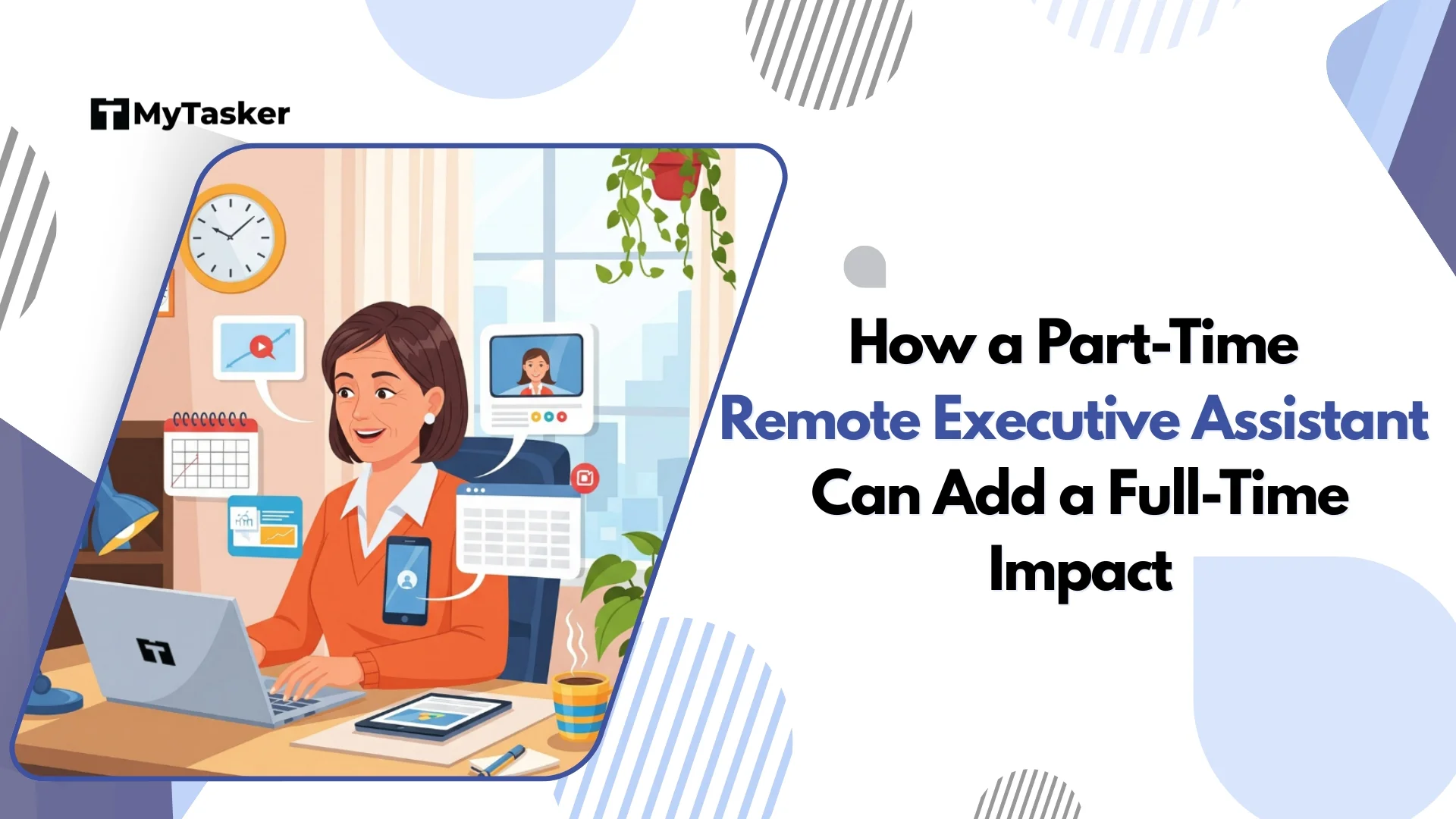The landscape of business is more competitive and dynamic as ever before. Even the slightest edge can make a world of difference.
And thus, small business owners, freelancers, and startup founders are increasingly turning to virtual assistants (VAs) to optimize their operations, manage their time better, and improve overall efficiency. Understanding the various costs associated with hiring a virtual assistant is crucial for making informed decisions that align with budget constraints and operational needs. We will explore the different factors that influence virtual assistant costs, the pros and cons of hiring one, as well as insights from real users regarding their experiences.
Cost Factors Affecting Virtual Assistants
Virtual assistant costs are influenced by several variables, including:
- Experience Level: Entry-level VAs typically charge less, while seasoned professionals demand higher fees due to their proven expertise.
- Specialization: VAs with specific skills, such as digital marketing or bookkeeping, may command higher rates.
- Geographical Location: Hourly rates can vary significantly depending on the VA's location, with VAs in countries with lower living costs often charging less.
- Contract Type: Prices can differ based on whether you hire on a per-project basis, hourly, or for retainer services, which might offer cost savings.
- Service Scope: The range of services requested—from data entry to more complex tasks—can also impact the overall cost.
On average, virtual assistant rates can range from $15 to $75 per hour, depending on the above factors. Freelancers on platforms such as Upwork or Fiverr offer varying rates based on their skill sets and experience.
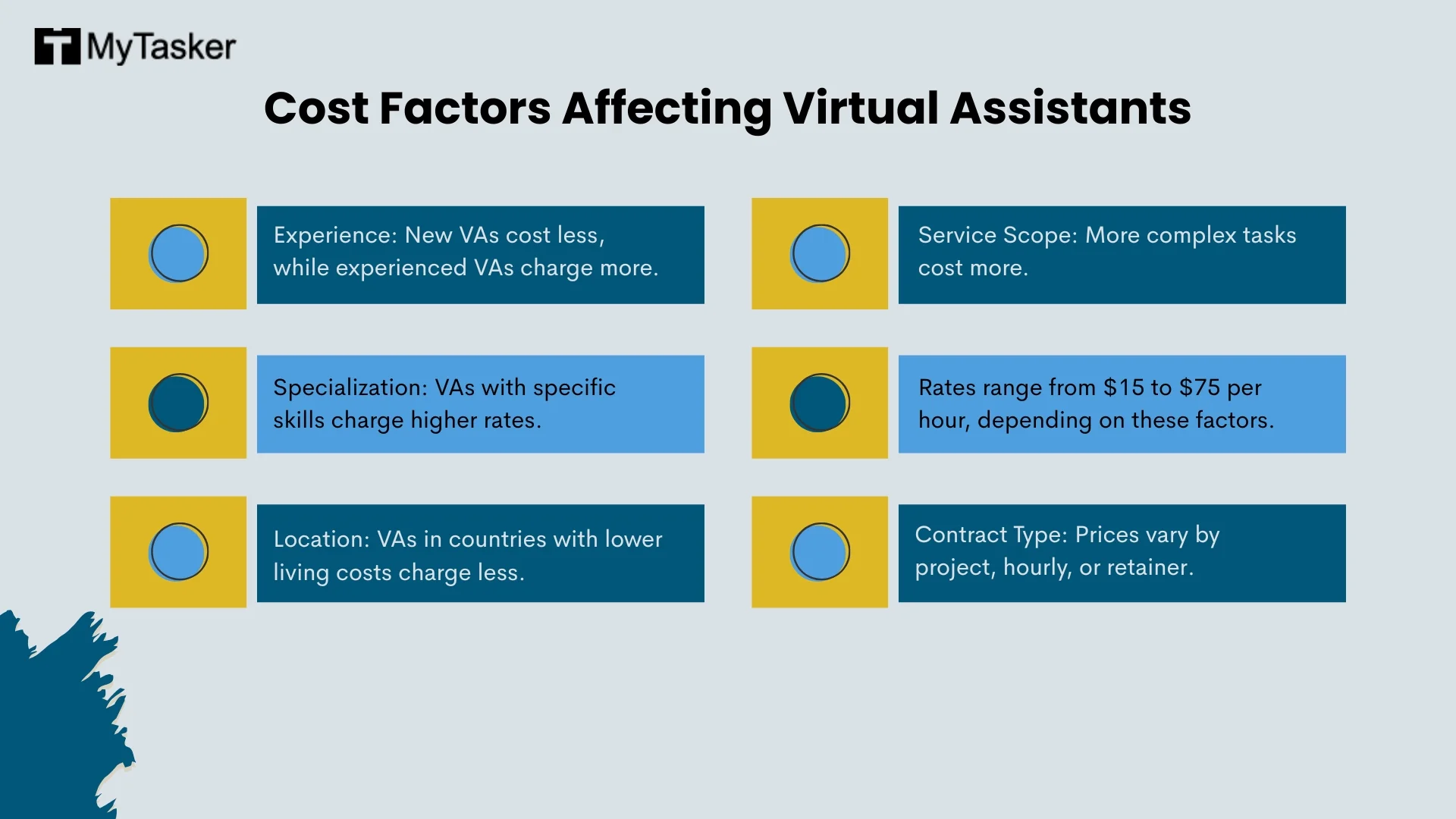
Customer Opinions and Real-World Experiences
Reviews from users of virtual assistant services provide valuable insights into their real-world experiences. Here’s a summary of findings from platforms like Reddit, G2, Trustpilot, and Capterra.
Data-Driven Insights
According to a report by Statista, the global virtual assistant market is projected to reach $25.6 billion by 2026, underscoring a growing adoption among businesses.
Furthermore, a survey conducted by Fiverr noted that 78% of small business owners reported better efficiency after hiring a VA, emphasizing the productive outcome outweighing initial costs.
Understanding the costs and potential benefits of hiring virtual assistants empowers small business owners, freelancers, and startup founders to make strategic decisions that can significantly elevate their operational productivity and efficiency.
Types of Virtual Assistant Services
In today's fast-paced business environment, small business owners, freelancers, and startup founders seek efficient ways to optimize their operations and manage their growing workloads. Virtual assistants (VAs) offer a diverse range of services that can be tailored to meet specific business needs, allowing entrepreneurs to focus on core activities. Understanding the types of services and their associated costs provides insights into how to allocate resources effectively. Below are the primary categories of virtual assistant services commonly offered, alongside their benefits and potential drawbacks.
- Administrative Support: These services include scheduling appointments, managing emails, data entry, and file organization. Administrative VAs are ideal for streamlining back-office tasks, allowing clients to focus on higher-level business strategies.
- Social Media Management: VAs specialize in creating content schedules, managing posts, engaging with followers, and analyzing engagement metrics on various platforms. According to a recent HubSpot Survey, businesses that invest in social media management see an average increase of 30% in lead generation.
- Customer Support: Offering 24/7 support via chat, email, or phone, VAs can manage customer inquiries, follow-ups, and issue resolution, enhancing customer satisfaction. A case study from Zendesk showed that companies with dedicated customer support teams experience a 20% boost in retention rates.
- Content Creation: VAs can assist with writing blogs, generating marketing copy, and producing multimedia content. Businesses that utilize content marketing see conversion rates up to 6 times higher than those that do not, as noted by Content Marketing Institute.
- Bookkeeping and Financial Management: Handling invoices, tracking expenses, and monitoring payroll, VAs can provide essential financial oversight. Data from a report by the American Express indicated that businesses effectively managing their finances reduce costs by an average of 15%.
- Marketing and SEO Services: VAs can help with digital marketing strategies, including search engine optimization (SEO), email marketing, and PPC campaigns. Neil Patel claims that businesses that focus on SEO can expect a 14.6% close rate for inbound leads, compared to 1.7% for outbound leads.
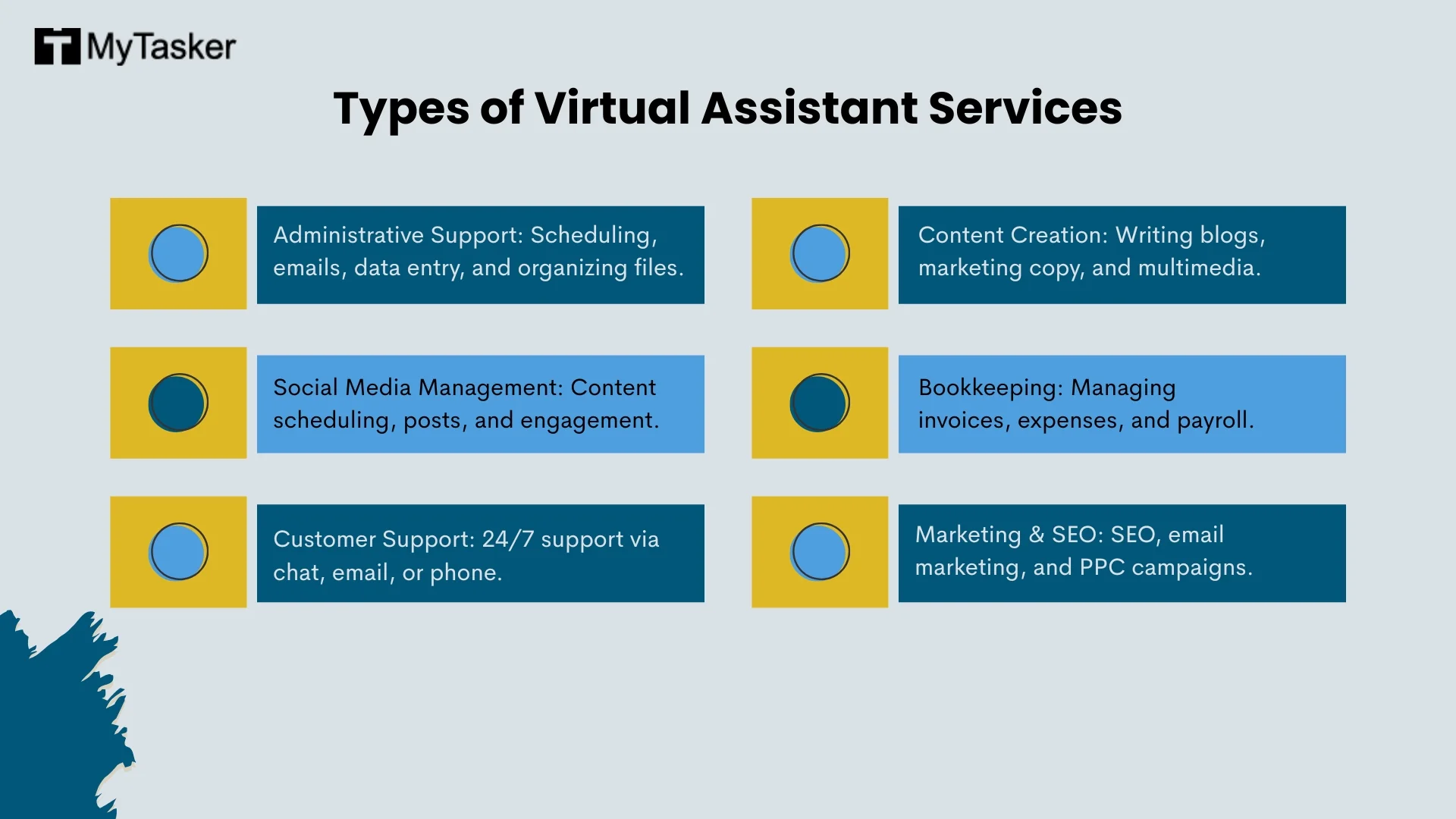
Insights from User Reviews
Customer opinions provide valuable insights into the various experiences of hiring virtual assistants. On platforms like Reddit, users frequently discuss their experiences:
- "I found a virtual assistant for $10 an hour, and she’s been a game changer for my daily scheduling!" — User on Reddit
- "Tried multiple VAs, and it took a while to find one who understood my brand voice for social media." — User on Trustpilot
In reviews from G2 and Capterra, common praises highlight efficiency and expertise:
- "The VA I hired for content creation increased my blog engagement by 50% within a month." — User Review on Capterra
- "Pricing was transparent, and I got exactly what I paid for — very professional." — User on G2
Concluding Insights
Ultimately, the types of virtual assistant services available cater to a wide array of business functions, with potential cost efficiencies making them an attractive option for small business owners, freelancers, and startup founders. By scaling operations through VAs, entrepreneurs not only save money but also optimize their workflows for enhanced productivity. However, it is crucial to carefully evaluate the choice of service providers to align their offerings with your specific business needs and to maintain a clear line of communication to mitigate any potential drawbacks.
Pricing Models for Virtual Assistants
The cost of hiring a virtual assistant varies widely depending on factors such as location, skill level, and the specific pricing model employed. While some business owners may perceive virtual assistants as an additional expense, understanding the different pricing structures can lead to significant savings and enhanced efficiency. This section breaks down the key pricing models for virtual assistants, offering insights from industry trends, user experiences, and expert advice.
- Hourly Rate: Many virtual assistants charge on an hourly basis, which can range from $15 to $100 per hour, depending on their expertise and location.
- Monthly Retainer: A straightforward model where clients pay a set fee for a specified number of hours, typically ranging from $300 to $2,500 monthly.
- Per-Task Pricing: Some assistants may charge per completed task, ideal for specific jobs such as data entry or content creation.
- Project-Based Fees: A fixed rate is assigned to specific projects, often utilized for one-off tasks or campaigns, ranging from $200 to $5,000 based on complexity.
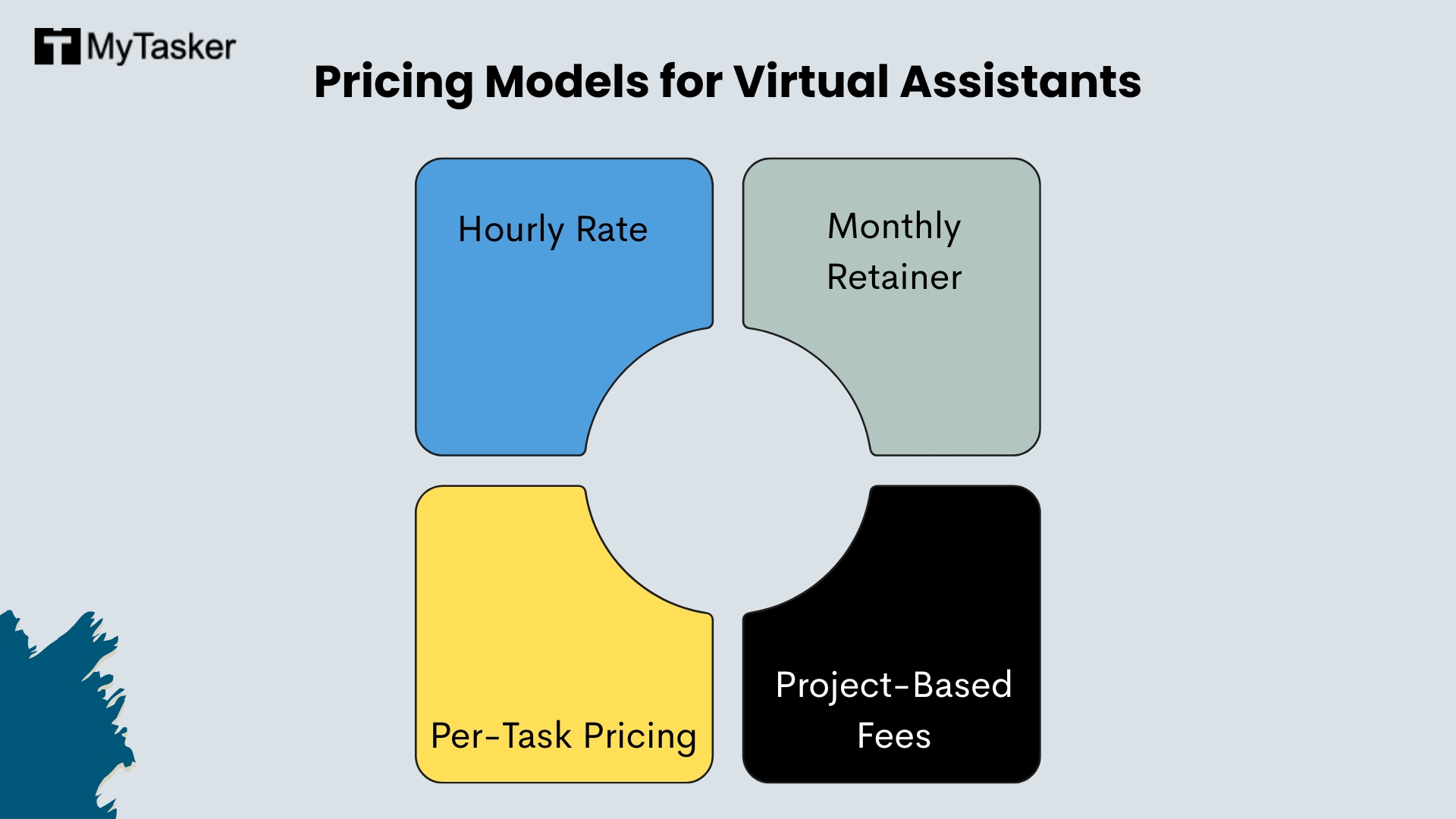
Pros and Cons of Different Pricing Models
When considering which pricing model to choose, small business owners, freelancers, and startup founders should weigh the advantages and disadvantages:
| Model | Pros | Cons |
| Hourly Rate | Flexibility in use of hours | Costs can escalate quickly |
| No long-term commitment | Hours may need to be tracked meticulously | |
| Monthly Retainer | Predictable expenses | Potentially unused hours |
| Dedicated availability | Long-term commitment | |
| Per-Task Pricing | Cost-effective for occasional tasks | Inconsistent availability |
| Clear expectations of pricing | Less comprehensive support | |
| Project-Based Fees | Well-defined deliverables | More rigid pricing |
| Budget-friendly for projects | Not ideal for ongoing tasks |
User Experiences and Insights
Understanding user experiences can significantly inform your decision-making process. Analysis of reviews from platforms like Reddit, G2, Trustpilot, and Capterra reveals various perspectives on the costs of virtual assistants:
- On Reddit, users noted that while the initial cost might be higher than expected, the investment often resulted in freeing up hours for strategic activities. One user stated, "I spent $300 on a VA and saved over 10 hours a week. That’s a no-brainer in my book!"
- Capterra reviews often reflect value gained from retaining monthly assistants. A startup founder mentioned, "Our VA has become an integral part of our team and is worth every cent of the $1,200 monthly fee."
- However, some users voiced concerns about hourly billing unpredictability. A user on G2 remarked, "I underestimated how quickly the hours added up. I wish I had opted for a monthly retainer from the start."
- Additionally, Trustpilot testimonials highlighted satisfaction with task-specific pricing; one user noted, "Paying per task for our social media posts made budgeting straightforward and stress-free."
In conclusion, selecting the right pricing model for virtual assistants hinges on understanding your business needs, the tasks at hand, and your financial capacity. With various models offering unique advantages, small business owners, freelancers, and startup founders can find a solution that optimally utilizes both their time and budget.
Finding and Hiring a Virtual Assistant
In today's fast-paced business environment, small business owners, freelancers, and startup founders are increasingly turning to virtual assistants (VAs) to optimize their operations and manage their time effectively. Understanding the associated costs of hiring a virtual assistant is crucial for making informed decisions that align with your financial capabilities and business goals.
This section will explore the various aspects of finding and hiring a virtual assistant, including types of virtual assistants, where to find them, factors affecting cost, and a consideration of customer opinions and real-world experiences.
Key Information Summary
- Virtual assistants can dramatically enhance productivity and efficiency for business owners and freelancers.
- The cost of hiring a virtual assistant varies significantly based on skill level, experience, and geographical location.
- Common platforms for hiring VAs include Upwork, Fiverr, and specialized agencies that provide remote assistance.
- Real-world experiences highlight both positive and negative aspects of working with VAs.
Where to Find Virtual Assistants
When searching for the right virtual assistant, consider the following platforms and strategies:
- Freelancing Platforms: Websites like Upwork and Fiverr allow you to browse profiles, read reviews, and select based on skills and budget.
- Dedicated Agencies: Many VAs come through reputable agencies that vet their employees and may provide additional guarantees, such as replacements if the match doesn't work out.
- Networking and Referrals: Reach out through your professional network or forums to get recommendations from trusted sources.
Factors Affecting Virtual Assistant Costs
The cost of hiring a virtual assistant is influenced by several key factors:
- Experience Level: New VAs may charge less, while experienced professionals can command higher fees.
- Skill Set: Specialized skills (e.g., social media management, graphic design) often come at a premium.
- Geographical Location: Rates can fluctuate based on the cost of living in the VA's country; for example, contractors from the Philippines or India often charge less than those based in Western countries.
User Reviews and Insights
Analyzing user experiences from forums like Reddit and review platforms such as G2, Trustpilot, and Capterra provides valuable insights:
Positive Feedback:
- "Using a VA has been a game changer for my small business. I delegate routine tasks and can focus on growth." - User comment on Reddit.
- "I found an amazing VA on Upwork for just $15 an hour, and their work quality exceeds my expectations." - Review on G2.
Negative Experiences:
- "Tried a couple of VAs who disappeared mid-project. This made me hesitant to invest more in remote assistance." - User review on Trustpilot.
- "It's tough to manage communication across time zones; I underestimated how much that would affect productivity." - User comment on Capterra.
In conclusion, finding and hiring a virtual assistant offers many benefits, but it's vital to weigh the pros and cons, costs, and real-world experiences shared by users. Conduct thorough research to select the best platform, understand the potential impacts of geographical differences, and clarify expectations to ensure a successful partnership.
| Cost Range | Experience Level | Typical Skill Sets |
| $10 - $25 per hour | Entry Level | Administrative duties, Data Entry |
| $25 - $50 per hour | Intermediate Level | Social Media Management, Customer Service |
| $50 - $150 per hour | Expert Level | Graphic Design, Digital Marketing |
Cost-Saving Tips for Hiring Virtual Assistants
Hiring a virtual assistant (VA) can be an excellent strategy for small business owners, freelancers, and startup founders. However, understanding the costs associated with hiring a VA and finding ways to optimize those expenses can lead to significant savings. In this section, we will explore effective cost-saving strategies that can ensure you receive quality assistance without straining your budget.
- Choose the Right VA Platform: Different platforms may offer varying rates for virtual assistants. Researching the best platforms like Upwork, Fiverr, or specialized VA services can lead to better deals.
- Consider Hourly vs. Project-Based Rates: Evaluate whether hiring on an hourly basis or paying a flat fee for projects is more cost-efficient for your needs.
- Bundle Services: Some VAs may provide package deals that bundle multiple services, offering more value for money.
- Hire Internationally: Embrace the global workforce. Hiring VAs from regions with lower living costs can substantially decrease wage expectations, offering similar skills at a fraction of the price.
- Set Clear Expectations: Ensuring that tasks and expected outcomes are clearly defined can reduce time spent on revisions and miscommunications, ultimately saving you money.
- Leverage Free Trial Periods: Take advantage of free trial periods offered by some VA services to gauge their suitability before committing financially.
Pros and Cons of Hiring a Virtual Assistant
Understanding the benefits and drawbacks of hiring a virtual assistant can greatly influence your cost-saving strategies.
Pros:
- Increased productivity by delegating tasks.
- Flexibility in scaling help as needed.
- Access to specialized skills without long-term commitments.
Cons:
- Potential for miscommunication, especially in remote settings.
- Variable quality of work depending on the VA's experience.
- Time investment required for onboarding and training.
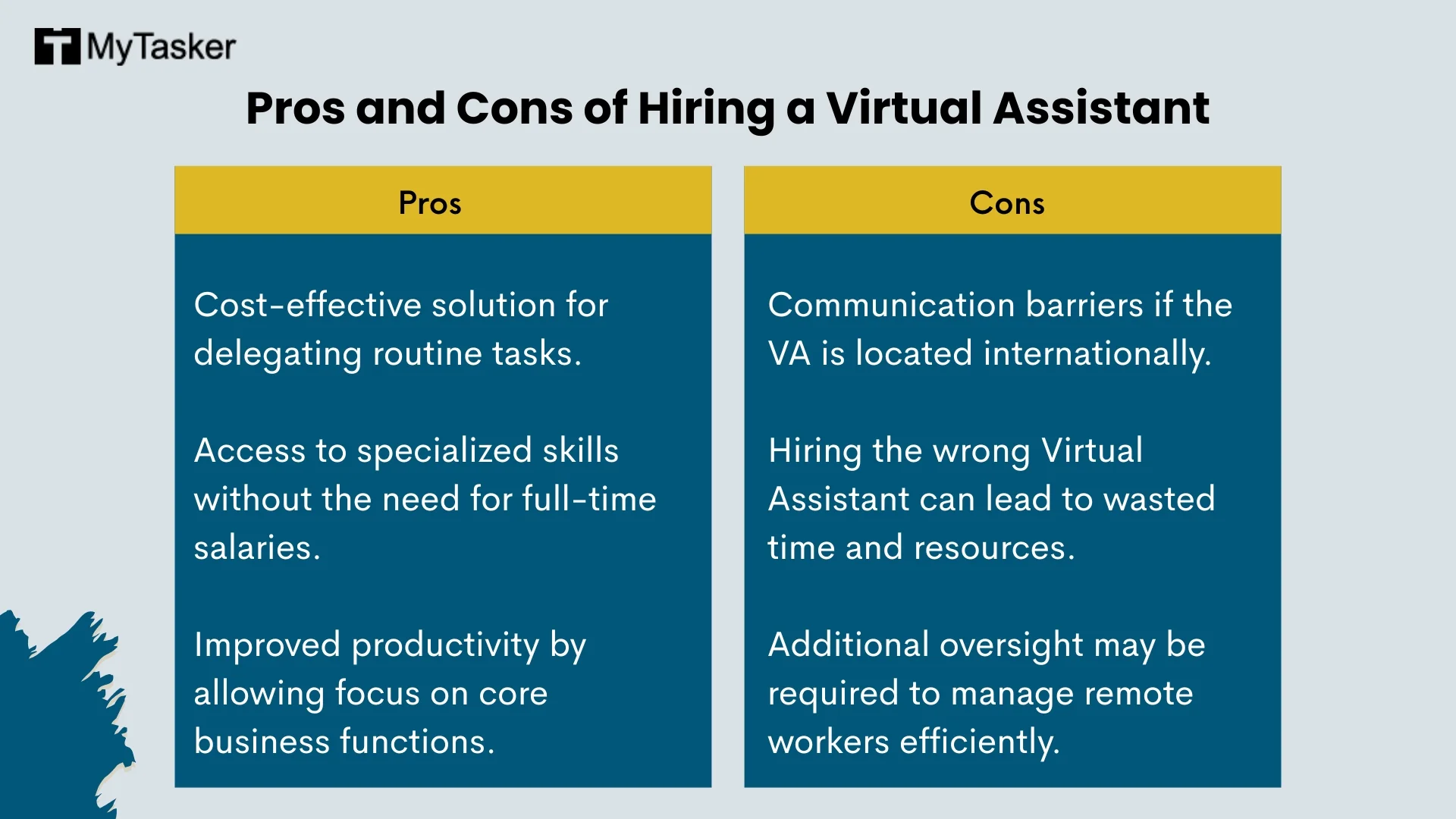
User Insights on VA Costs
Real-world user experiences provide invaluable insights into hiring virtual assistants. Reviews from platforms like Reddit, G2, and Trustpilot highlight both the triumphs and challenges of this practice.
- One G2 user shared, "I saved significant time by hiring a VA for content posting and social media management. The cost was less than hiring a full-time employee!"
- On Reddit, a startup founder noted, "I initially went for the cheapest VA, but the quality of work was poor. I learned that paying a fair price for expertise pays off in the long run."
- Trustpilot reviews indicate mixed feelings; one user remarked, "The VA had great skills, but I still felt the need to oversee their work closely."
Data-Driven Insights
According to a 2023 report from Statista, small businesses that utilize VAs report an average productivity increase of 30%. Furthermore, a survey by Capterra revealed that 60% of users confirmed a decrease in operational costs after employing a virtual assistant.
| Area of Improvement | Percentage of Users Reporting Improvement |
| Time Management | 40% |
| Cost Efficiency | 60% |
| Task Delegation | 35% |
By aligning your budget with the right strategies, hiring a virtual assistant can become a transformative investment rather than a financial burden. Careful planning and implementation of these tips will ensure that your foray into the world of virtual assistance is both cost-effective and beneficial to your business.
Conclusion
In conclusion, understanding the intricacies of virtual assistant costs is essential for small business owners, freelancers, and startup founders looking to enhance their operational efficiency. By considering factors such as experience, skill specialization, geographical location, and pricing models, entrepreneurs can make informed decisions that align with their budgetary constraints. While hiring virtual assistants presents significant benefits, including increased productivity and access to specialized skills, it also requires careful consideration of potential challenges like quality variability and communication barriers. Leveraging insights from user experiences and best practices can further optimize the process, ensuring that the investment in virtual assistance ultimately contributes to sustainable business growth.




